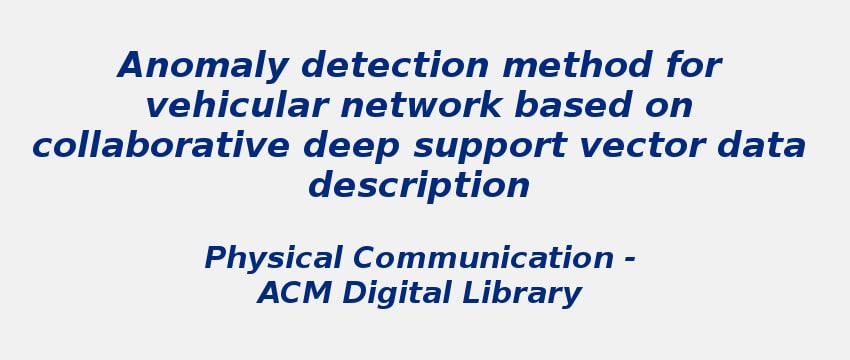Research Area: Machine Learning
With the accelerating convergence of fifth-generation (5G) communication technology and the automotive industry, vehicular network has received wide attention due to its great potential for improving safety and efficiency. However, it is still a great challenge to protect the driving safety and privacy of vehicular network from the increasingly complex network environment. Aiming at the problem of low detection accuracy in traditional vehicular network intrusion detection system (VIDS), a collaborative deep support vector data description (Coll-DSVDD) method combining multi-agent collaborative network and deep support data description (DSVDD) is proposed for optimization. The method firstly deploys the deep convolutional neural network and support vector data description in each vehicular network, and then performs collaborative interaction among multiple vehicular networks to generate an optimized network. The optimized network generated after coordination does not need to be retrained, which can effectively improve the protection capability of the vehicular network against new attacks while reducing the false negative rate (FNR) during detection. The experimental results show that, compared with the traditional single vehicular network detection system, the Coll-DSVDD method can optimize the FNR to 52% with an average detection accuracy of 91%, when it is deployed in multiple vehicular networks.
Keywords:
Author(s) Name: Jianbin Mai, Yongdong Wu, Zhiquan Liu, Jingjing Guo, Zuobin Ying, Xin Chen, Shunyan Cui
Journal name: Physical Communication
Conferrence name:
Publisher name: ACM Digital Library
DOI: 10.1016/j.phycom.2022.101940
Volume Information: Volume 56, February 2023
